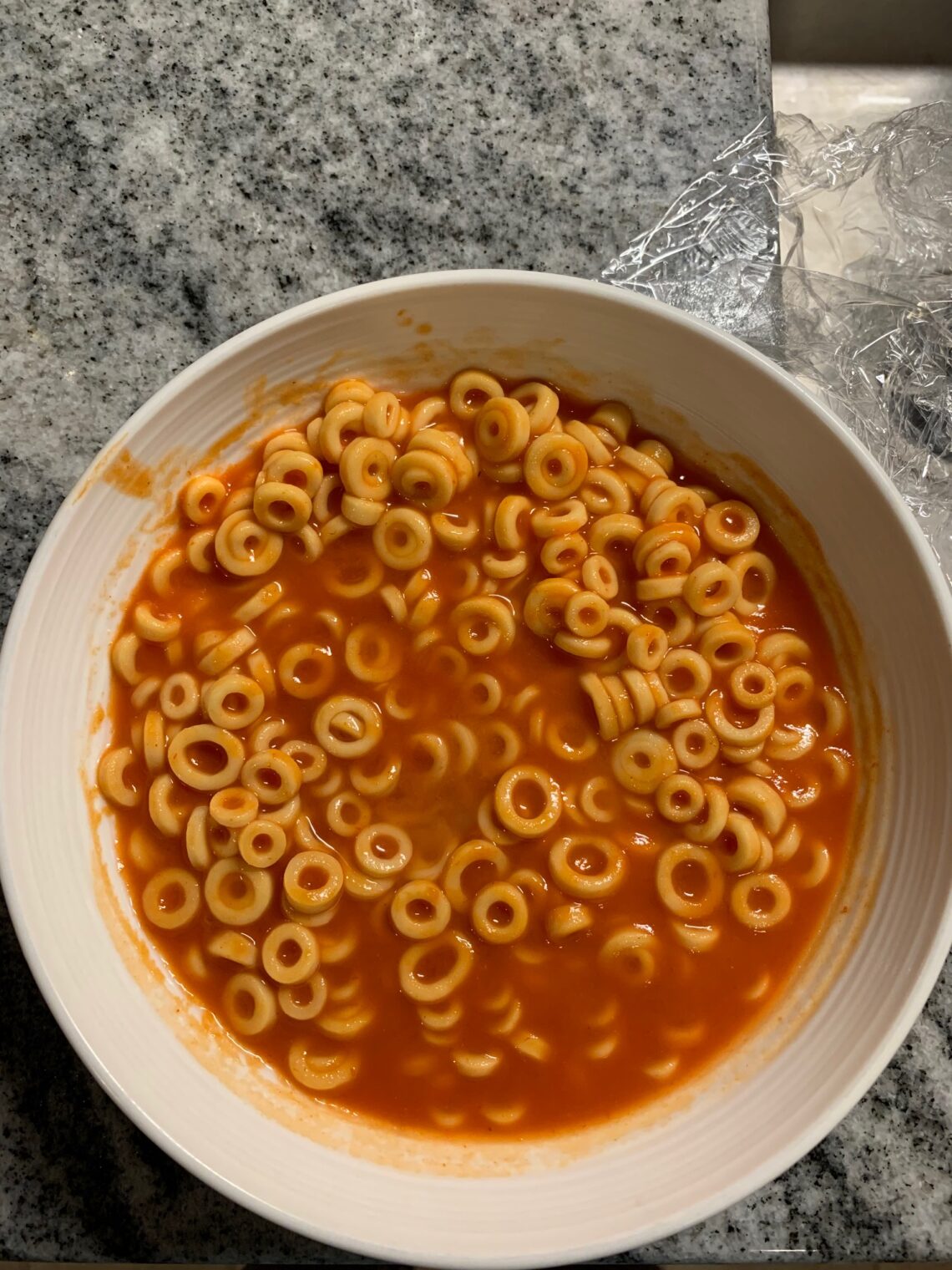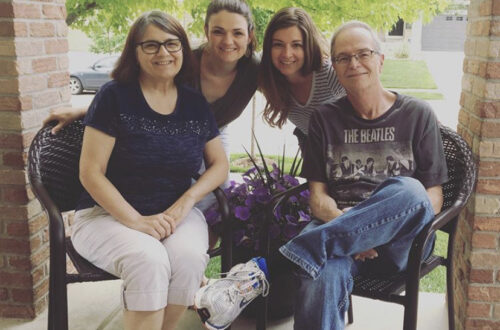
The Uneaten Bowl of Spaghettios
Or “Never a Controlled Experiment” Part 2
We’ve been struggling for months now–probably since the beginning of the school year–trying to decide if J’s current medications are effective and helping him to be the best version of himself.
We’re starting to think that they’re not.
It was a question J’s Dr asked us back around October. It was our first visit with her (J’s old psychiatrist retired just recently–we loved her!) and as she was familiarizing herself with J’s file she asked us, “do you think J’s anti-anxiety medication is still helping his anxiety.”
The question totally took my off guard. Every discussion we’ve had for years is, “how is J doing? how is his anxiety?” the question “do you think his medication is still helping with his anxiety?” never came up in that way, or at least I never considered it in that way. I haven’t thought about his medication for years–not beyond adjusting for higher doses based on his age and growth.
And here’s the funny thing. I couldn’t confidently say to the new doctor “yes.”
I went home and mulled that question over for weeks. I asked people who knew J best and asked them the same question and we all kind of came up with the same answer. No. In fact, I’m guessing most people who know J wouldn’t believe J is on medication for anxiety. Because his anxiety is THAT bad. And here’s the thing–J is SO aware of how his anxiety affects him and knows ALL of the strategies. He tries really hard to use his strategies. It’s just that the anxiety is most often that much bigger and stronger.
And so we’ve begun the journey of adjusting his medication. (Did you know that people can plateau or become resistant for medication if they’ve been on it for years?) We’re rethinking the Zoloft. And before we can take him fully off it to try something new, we’ve started slowly introducing another drug in the interm to overall “calm his system down.” It’s a blood pressure medication and its “off label” uses include reducing anxiety and ADHD.
So far J’s physically responding well to this. We started the introductory dose two weeks before Christmas and he’s weathered the initial side effects really well. Many kids are hit hard with extreme fatigue when they start (because it lowers blood pressure) and can struggle for weeks. J slept the entire Sunday afternoon the day after he started it and was back to normal right after that. We took a few days off running just to be safe, but he was soon back to running again.
At the beginning of January we checked in with the Dr, and she decided we were ready to increase the dosage. And so two Thursdays ago we did just that. Friday morning school was cancelled because of weather and by Friday afternoon everyone was home as the blizzard started. We hung out playing Wii, watching movies. J had a little dry cough and went to bed early.
He woke up Saturday only to go right back to bed and sleep the entire day. And then he slept the entire night. The same thing happened Sunday as well. He woke up only to go back to bed and sleep the entire day away. And then he slept the entire night. Monday (Martin Luther King Day) he slept all morning. It wasn’t until Monday afternoon that he had the energy to play Wii again.
The entire weekend had me and Steve guessing. Could it be the increase in medication?–this type of fatigue is what many kids experience with changes in dosage. But there were other things to be concerned about. J kept complaining about headaches. Stomach aches. Dizziness. He got up in the middle of the night desperately looking for a sweatshirt because he was so cold and then got up again to ask Steve to turn up the thermostat. He would ask for food but wouldn’t eat a bite (which if you know J, that’s absolutely UNHEARD of. The kid is always starving for food). A lot of these symptoms are some of the “less common but more concerning side effects” of the drug. It had me take note of every single symptom J had. But J also had a sore throat, dry cough, and low grade fever which made me think J was actually sick. I was sure he had strep. (I had strep 3 times in 3 months a couple of years ago. I know strep). Chills, sore throat, stomach pain, fever. That sounds like strep to me. But I didn’t know for sure. And trying to diagnose medical issues with someone who struggles with communication is hard.

I was just about ready to take him in when Monday night I knew for sure what it was–the flu. Because W and I had started coming down with similar symptoms and I knew it definitely wasn’t strep. For the entire last week. W, J, and I have been battling the flu. (The fatigue, respiratory junk, headaches, chills, dizziness, body aches). And I am pretty sure–like 82% sure–the symptoms J was feeling weren’t from the increase in dosage of his medication. Unlike W and me, J didn’t get a flu shot this year (he has in years past, but his anxiety this year was pretty bad with it and we couldn’t convince him to do it) so it seemed to be extra bad. But I can’t be 100% sure. The symptoms (like fatigue) could have overlapped with medication side effects. The flu just happened to hit J the same time as the increase with his new meds which means, once again, this isn’t a controlled experiment.
J was supposed to have another small increase in dosage this last Thursday. But Steve and I have decided to hold off until J is 100% again. He’s over the rough part, but he still is quite fatigued (I’m thinking the fatigue is from the flu–just because I’m feeling the same way). Thursday he was struggling to stay awake in class. Probably not the best time to give his body something new to adjust to.
It’s experiences like this that make me wonder how often, in the medical world, do doctors ever get that perfect window of “controlled environment” to administer medication or treatment? When we humans live in a world that’s always changing or a world that our bodies are always adapting to?
Maybe that’s why, for so many years I hadn’t thought about changing J’s medication–even when it wasn’t giving him the support he needed. Because changing the status quo is so uncertain and so unpredictable–not just for kids with autism but for all of us.




